- Home
- Ellis, Tim
In the Twinkling of an Eye (9781311593672) Page 3
In the Twinkling of an Eye (9781311593672) Read online
Page 3
‘That has yet to be confirmed, Miss Terrell.’
‘Clare Ainsworth from Five News. Is it true that the body was frozen?’
‘It’s true that the body had been kept in a freezer, but – as you can imagine in this heat – it’s not frozen now.’
‘Mike Thompson from the Thurrock Sentinel. Can you tell us how she died?’
‘I’m sorry, that’s unclear at the moment. We’ll know more after the post mortem tomorrow.’
‘Roger Manku from the Mission Daily. Do you know where she’s been for the past month?’
‘You’re making the assumption that the body is that of Clarice Kennedy, Mr Manku. I’m afraid we won’t know who it is until after the post mortem, and a formal identification by relatives has taken place.’
Colin McPhail from NBC Europe. Do you have any suspects yet?’
‘Not at this time. We do, however, have a number of leads, which I’m unable to tell you about, but we will be following up on them in due course.’
‘Nicki Jacobs from the Chigwell Herald. How does it feel to be a free man again, DS Gilbert?’
He smiled. ‘It feels very good indeed, Miss Jacobs.’ He held his hand up. ‘That’s all we have for you today. There’ll be a proper press briefing at the station at nine o’clock tomorrow morning.’
‘Not bad for an amateur,’ Xena said.
‘Very generous.’
***
‘DI Blake is so mean,’ Richards said as they walked across the car park and climbed into the pool car.
‘No detective likes child murders.’
‘Maybe she just doesn’t like me.’
‘Blake doesn’t like anyone.’
‘Why do you think that is?’
‘So now I’m a psychologist?’
‘I just thought you might know.’
‘I don’t know, but she’s a very good detective.’
‘Do you think it’s something to do with her childhood?’
‘So now I’m a child psychologist?’
Richards sighed loudly. ‘This should be an easy case, shouldn’t it?’
‘What makes you say that?’
‘Boy sneaks out of house to collect golf balls, somebody kills him, we find out who.’
‘That certainly sounds easy enough.’
‘You’re not convinced, are you?’
‘Who killed him?’
‘Well, we don’t know yet.’
‘Who would he find on a golf course in the middle of the night?’
Richards screwed up her face. ‘Well . . .’
‘Do we believe in coincidences?’
‘No. Coincidences are the stuff of fantasy.’
‘Did you just make that up?’
‘Fortune cookie.’
‘Those Chinese at the takeaway have a lot to answer for.’
‘So, if it wasn’t a coincidence, who killed him?’
‘You tell me, Detective Richards.’
‘I love the sound of that.’
‘Maybe you should put it on an iPod.’ He adopted the voice of a guru. ‘You are Detective Mary Richards. You are a strong and intelligent woman. You are Detective Mary Richards . . .’
‘I might just do that, but with a proper voice.’
‘Well?’
‘Somebody could have seen him leaving his house and followed him?’
‘A coincidence – who would be passing his house in the middle of the night as he climbed out of his bedroom window?’
‘Someone who knew he went out collecting golf balls?’
‘Possible.’
‘Maybe a security guard at the golf club?’
‘On the greens in the middle of the night?’
‘Isn’t that what security guards do?’
‘No, but even if they did – it would still be a coincidence.’
‘Maybe the boy was meeting someone?’
‘Now you’re heading in the right direction – who?’
‘A friend?’
‘Possible.’
‘A paedophile?’
‘Even more possible, but until we know how he was killed . . .’
‘. . . And whether he was sexually assaulted?’
‘Exactly. So, what have you found out about the diary?’
‘I phoned the man who takes the bookings for spaces at Sadler’s Farm Car Boot fairs, but he wasn’t much help. He said he spoke to the woman on the phone and that she said her name was Jane Smith . . .’
‘That’s an unusual name. No address?’
‘A telephone number.’
‘Which you rang and got an unknown number?’
‘Something like that.’
‘What about the diary?’
‘I read it last night in bed. It’s so sad.’
‘No clues?’
She pulled a notebook out of her handbag. ‘She was kept in a room without windows. No one could hear her scream. She never heard anything until he came to visit her. He chained her up like a dog by putting a manacle round her right ankle, which was then connected to a thick chain and secured to the wall. She was told to call him Daddy, but he obviously wasn’t her father. He did things to her, and she was forced to do things to him. He’d beat her if she didn’t do as he said. She cried a lot.’
‘No surname?’
‘Just Loveday.’
‘What about hidden messages in the writing?’
‘I can’t see any.’
‘You couldn’t find them even if they were highlighted in pink with green spots. Do you want me to take a look at the diary?’
‘Tonight?’
‘Yes, if you want. You could also ask Toadstone to look at it.’
‘Unofficially?’
‘Of course. We could hardly justify utilising valuable resources on a diary from 1966 that you purchased at a car boot sale. Not only that, it might be someone’s idea of a joke, or a work of fiction.’
‘I hadn’t thought of that.’
‘Did you do an internet search for someone called Loveday who went missing in 1966?’
‘Yes, but I didn’t find anything.’
‘That’s unusual.’
‘Unless nobody knew she was missing.’
Parish rubbed his stubble. ‘It’s possible, I suppose.’
‘Remember the last case. A lot of his victims were runaways – nobody cared enough to report them missing.’
‘Maybe Loveday isn’t her real name.’
‘Don’t say that. If that’s true, then I have nothing.’
‘What’s interesting is that there are no clues to who she was, who he was, and where it all took place. It’s as if she was told that she could keep a diary, but she couldn’t write any proper names or places in it.’
‘Maybe I should look for who else went missing during that year.’
‘I would.’
‘I’ll do that.’
They arrived at the Paradise Golf and Country Club in Broxbourne and Richards pulled into a space close to the club building. The white forensic truck was already parked sideways at the far end taking up a at least ten spaces.
A man in his mid-forties with black hair and a square jaw marched towards them with his hand outstretched. ‘Robert Hunter – the club manager.’
‘Detective Inspector Parish,’ he said. ‘And this is Detective Constable Richards.’
Richards smiled as she shook Hunter’s hand.
‘Now look, Inspector. I have members who are eager to play a round of golf . . .’
He’d never played golf, but he had watched a few rounds of the British Open on the television until he fell asleep, and he was very familiar with the nineteenth hole. ‘I’m sorry, Mr Hunter – this is a crime scene now.’
‘What does that mean exactly?’
‘It means that nobody enters the crime scene until I say they can.’
‘But . . . and when is that likely to be?’
‘Tomorrow, maybe the next day.’
‘But that’s preposterous.’
‘A child has been murdered, Mr Hunter.’
‘I’m well aware of that. A child who was trespassing on land that is owned by the golf club . . . I suppose we could inform members to bypass Hole 14 and . . .’
‘No, when I say this is a crime scene – I mean the whole golf course. Nobody will be playing rounds of golf until I say they can, which could possibly be tomorrow, but I can’t promise anything.’
‘You have no authority . . .’
‘I think you’ll find I do, Mr Hunter. Now, how do I get to Hole 14?’
Hunter pointed. ‘There’s a path that leads . . .’
‘Don’t you have golf buggies?’
‘They’re reserved for members . . .’
‘Or I could drive my car over there.’
The manager’s face was transformed into a mask of horror. ‘Wait here, I’ll get you a key to one of the buggies.’
‘A two-seater buggy with air conditioning,’ he called after Hunter.
‘Do they come with air conditioning?’ Richards asked.
‘The executive ones do.’
‘We certainly need one of those in this weather.’
Hunter returned with a buggy.
‘Thank you, Mr Hunter. Now, who found the body?’
‘Our head groundsman – Simeon Herbert.’ Hunter pointed to a man in dark green overalls and a cap.
‘Go and interview him,’ he said to Richards. ‘We want to know if he heard anything or saw anyone.’
Richards nodded and left.
He turned back to Mr Hunter. ‘My suggestion would be to inform all your members that due to unforeseen circumstances there will be no golf today.’
He sighed. ‘What about the bar, the shop, the driving range and our other facilities?’
‘As long as no one sets foot onto the golf course, I don’t see any problem with those continuing.’
‘That’s something at least.’
‘I know this is a major inconvenience Mr Hunter, and I’m grateful for your cooperation. I would also like a list of club members and the staff you employ.’
‘We pride ourselves in offering confidentiality for our members . . .’
‘Don’t be ridiculous. This is a golf club, isn’t it? Unless there’s something else going on here that you don’t want us to know about. Maybe I should ask a couple of detectives from Vice to come along and . . .’
‘That won’t be necessary, Inspector. I’ll have the lists printed off for you.’
‘I’m very grateful.’
Richards returned. ‘Done.’
They climbed onto the buggy. Parish sat in the driving seat. He’d never driven a buggy before, but the controls appeared to be straightforward enough.
They set off towards the fourteenth hole.
‘Why do you get to drive?’
‘It’s a man thing.’
She laughed. ‘I’ll drive back.’
‘Have you got a buggy licence?’
‘You can’t fool me with that.’
‘What did the groundsman say?’
‘He drives round . . .’
‘In a buggy?’
‘Yes, but it has a trailer attached, which is full of his equipment.’
‘Okay.’
‘So, he drives round the golf course at four-thirty each morning before the first match . . .’
‘Match?’
‘That’s what they’re called, aren’t they?’
‘Round.’
‘Round what?’
‘A round of golf.’
‘Not a match of golf?’
‘No.’
‘Oh, okay. Anyway, he checks the condition of each hole before the first golf round starts at five o’clock.’
‘Just the holes?’
‘And the lawns.’
‘Greens.’
‘Whatever . . . and he found Paul Gifford in one of the sand holes.’
‘Bunkers. Did he go into the bunker?’
‘He said he went to check whether the boy was alive or not.’
‘Okay, we’ll just have to eliminate his footprints.’
‘Of course, whoever put the boy’s body in the sand hole . . .’
‘Bunker.’
‘. . . In the sand hole would have left footprints.’
‘Not necessarily.’
‘Oh?’
‘Each bunker has a rake.’
‘To rake over the golfer’s footprints?’
‘Exactly.’
‘Amazing!’
The fourteenth hole was swarming with white-suited forensic officers. He brought the buggy to a stop.
No tent had been erected, and Toadstone was standing on the edge of the bunker keeping an eye on the work in the burning sun.
Parish looked around at where they were in relation to the world outside the golf club. He could see the church of St Mary’s Catholic Primary School in the distance. Through the fence – to his right – was Appleby Street, and beyond that number 37 Longfield Lane where Paul Gifford had lived.
He shook his head. What was the world coming to when a boy couldn’t sneak out of his house to collect used golf balls from the lakes, ponds and rivers at the local golf club to make some pocket money?
Chapter Three
They found the perfect property on the corner of Manor Road and Oak View Avenue, just along from Grange Hill tube station and opposite the cemetery. It had three floors and a basement for storage. The third floor was an apartment with its own side entrance. The ground, first and second floors had suites of offices.
‘Can we afford it?’ Charlie said.
‘No, but that’s just the point – we’ll rent. Do you want to live in a third-floor flat for the rest of your life?’
‘I suppose not.’
‘And I’m sure you don’t want to be a second-rate solicitor taking on cases that nobody else wants . . .’
‘So that’s what I am, is it?’
‘No, that’s not what you are. I’m simply making a point.’
‘I know. So, which office is mine?’
‘Well, you’ll be on the top floor, of course.’
‘And you?’
‘I’ll be on the ground floor.’
‘You’re going to start at the bottom and work your way up?’
‘Isn’t that the way it’s done? In a couple of years time I’ll be in your office sitting in your chair.’
‘I thought as much. Where will I be?’
‘You’ll be the Lord Chief Justice of England and Wales.’
‘I didn’t realise I was so ambitious. What about the offices in-between?’
‘We need to fill those up with solicitors who will bring in the money to feed your ambition.’
‘You seem to have it all worked out, Jerry Kowalski.’
‘I’m not just a pretty face with a stunning body, you know. I have great things planned for you, Charlie Baxter.’
He smiled, but she thought he looked a little nervous. He’d soon get used to the force of gravity pressing down on his face as he travelled upwards.
Charlie had a court appearance and left her to get everything organised. She began calling the people on the list that she’d made the night before and had kept in her handbag so that Charlie wouldn’t get even more paranoid than he actually was – the signwriter, furniture suppliers, a computer network incorporating accounting and legal case management software, a telephone network, agency staff until she had time to interview people for the positions. She added the company’s name – Baxter and Kowalski – to the law careers’ database stating that they were looking for three NQs – newly qualified solicitors – to be employed on a fixed salary with a view to becoming partners in the future.
The insurance investigator – Mr Krueger-Billett – called to confirm that a cheque for one hundred and eighty thousand pounds was in the post.
‘I look forward to receiving it,’ she said.
She finished making the calls and sat on the stairs watching the people and tra
ffic through the window. Yes, Charlie Baxter was going places – whether he liked it or not – and, of course, Jerry Kowalski was joining him for the ride.
***
‘A number of leads?’ Xena said. ‘Do you know something I don’t know?’
‘We have the walk-in freezer, the bleach, the fact that we’re probably looking for more than one person . . .’
‘Okay, you take the lead on this one. Where are we going first?’
‘I thought we were going to speak to Clarice Kennedy’s parents.’
‘After that, numpty.’
‘Mmmm! We could . . .’
‘Yes?’
‘What about . . . ?’
‘While you’re working out the answer to that little conundrum, you can buy me an ice cream.’
‘They’re not really leads, are they?’
‘No.’
They walked to one of the ice cream vans.
‘Get your swag bag out.’
‘What do you want?’ Stick asked her.
‘A ninety-nine.’
‘Small, medium or large?’ the ice cream man said.
‘Large. What’s your name?’
‘Howie.’
‘Last name?’
‘Why?’
‘Just curious.’
‘Well, I think you should keep your curiosity to yourself.’ He passed her the ninety-nine, which had already begun to melt.
‘Don’t you have ice cream that stays frozen?’
‘Of course I do, but I save the good stuff for my regulars.’
‘Who are they?’
‘Children.’
‘You sell ice cream to children?’
‘Of course I do.’
‘How many times have you been arrested, Howie?’
‘I’ve never been arrested.’
‘You mean, you’ve never been caught?’
‘Caught doing what?’
‘That’s what I’d like to know,’ she said, licking the ice cream off her thumb and forefinger, and trying to prevent it from dripping onto her top and down her slacks. ‘I’d like a list of exactly where you sell your ice cream to children.’
‘You’re crazy,’ and then said to Stick as he took his money, ‘Can’t you control your partner?’
Her eyes narrowed. ‘I think I’m going to arrest you.’
‘Keep going. Pretty soon I’ll be able to claim compensation from the Police Complaints Commission for police harassment.’

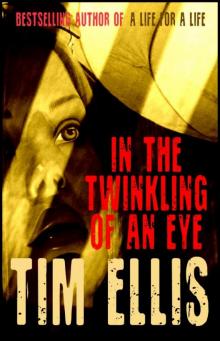 In the Twinkling of an Eye (9781311593672)
In the Twinkling of an Eye (9781311593672)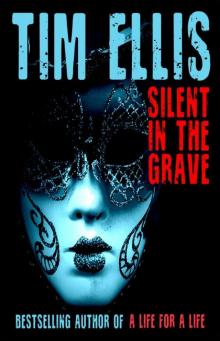 Silent in the Grave (9781311028495)
Silent in the Grave (9781311028495)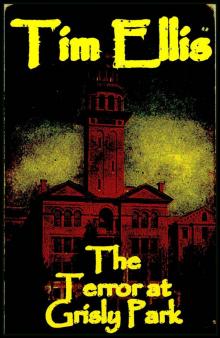 The Terror at Grisly Park (Quigg 5)
The Terror at Grisly Park (Quigg 5)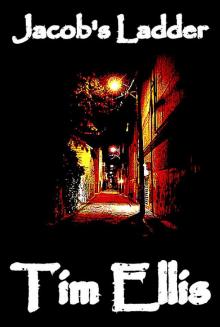 Jacob's Ladder (Stone & Randall 1)
Jacob's Ladder (Stone & Randall 1)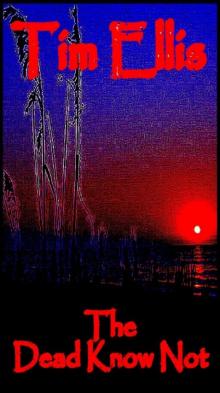 Dead Know Not (9781476316253)
Dead Know Not (9781476316253)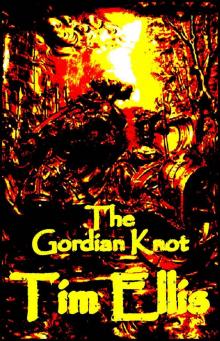 The Gordian Knot (Stone & Randall 2)
The Gordian Knot (Stone & Randall 2) Be Not Afraid (9781301650996)
Be Not Afraid (9781301650996)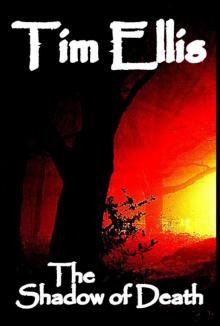 Shadow of Death (9781476057248)
Shadow of Death (9781476057248)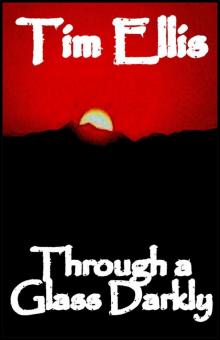 Through a Glass Darkly (9781301753000)
Through a Glass Darkly (9781301753000)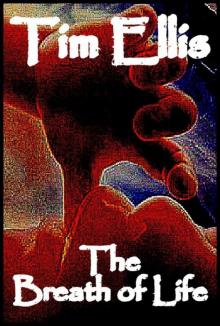 Breath of Life (9781476278742)
Breath of Life (9781476278742)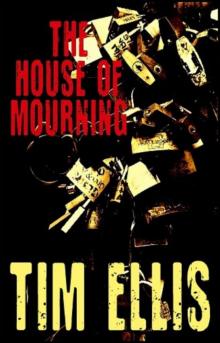 House of Mourning (9781301227112)
House of Mourning (9781301227112)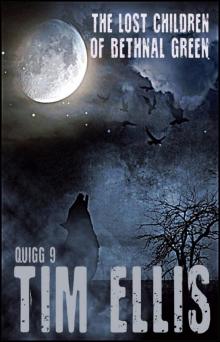 Lost Children of Bethnal Green (Quigg #9)
Lost Children of Bethnal Green (Quigg #9)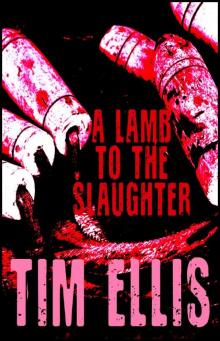 Lamb to the Slaughter (9781301399864)
Lamb to the Slaughter (9781301399864)